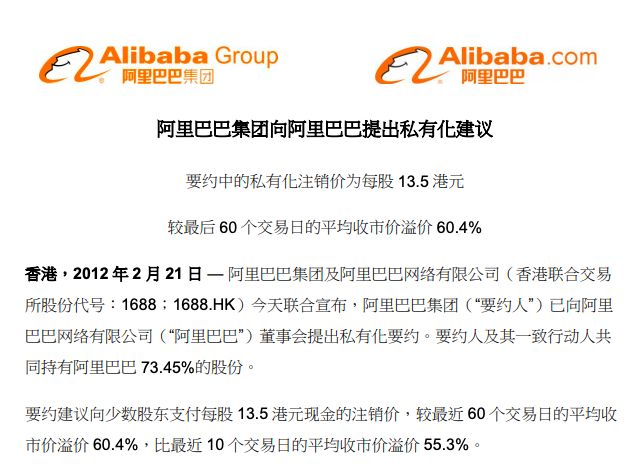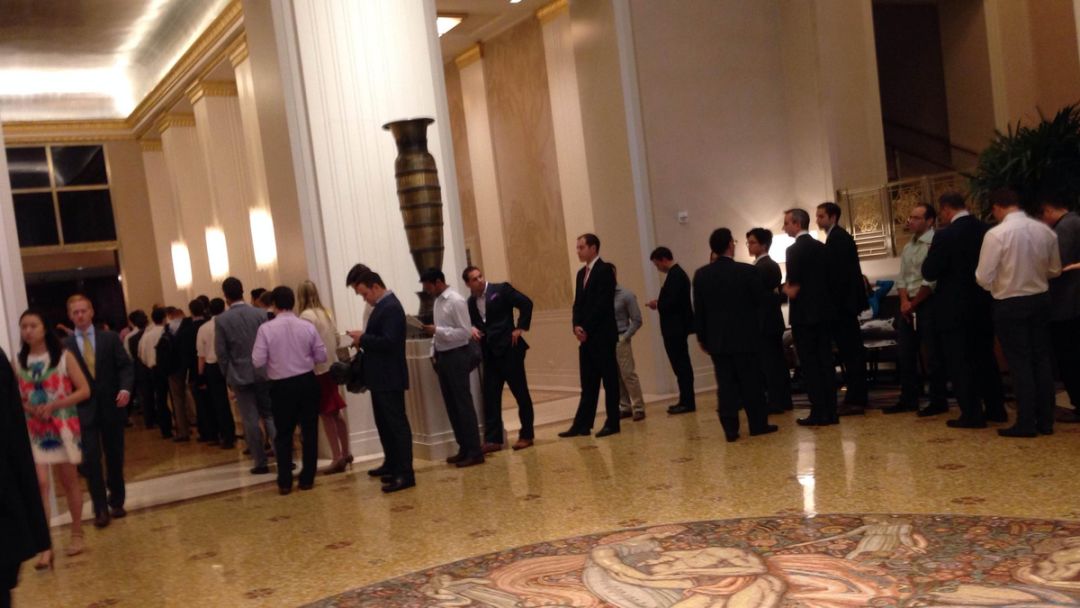Consumer-facing Taobao and Tmall followed suit. In this context, Alibaba Group decided to privatize the B2B listed in Hong Kong. Jack Ma explained that privatization is conducive to the formulation of long-term plans for customers and also provides shareholders with cashing opportunities.
On February 21, 2012, Alibaba Group announced the privatization of its Hong Kong-listed company. Shareholders and industry insiders were in an uproar.

But to the outside world, “de-yahoo” and building a “big Alibaba” empire are the ultimate goals of Jack Ma.
The intersection of Yahoo and Alibaba began in 2005. At that time, Yahoo acquired nearly 40% of the shares of Alibaba Group for $ 1 billion plus all assets of Yahoo China. After the marriage, Alibaba and Yahoo continued to diverge. Especially after Carol Butts succeeded Yang Zhiyuan as Yahoo’s CEO, Jack Ma and her suspicions gradually became public.
Ma Yun’s mind is that according to the agreement between Yahoo and Alibaba that year, in October 2010, Yahoo will obtain voting rights equivalent to equity, and management rights such as Jack Ma will be reduced from 35.7% to 31.7%. In other words, control may fall into Yahoo’s hands.
The privatization was negotiated with the repurchase of shares held by Yahoo. Despite Alibaba’s claim that the two are not related, most people still believe that Jack Ma is going to retake control step by step, and then let Alibaba go public as a whole. .
On May 25, 2012, Alibaba’s privatization offer was approved by the shareholders’ meeting; on June 6, Alibaba’s shares were suspended from trading; on June 20, Alibaba officially withdrew from the Hong Kong Stock Exchange.
At the same time as the implementation of the privatized B2B company, Alibaba Group and Yahoo also reached an equity repurchase agreement, using US $ 6.3 billion in cash and no more than 800 million US dollars in new Alibaba Group preferred shares to repurchase Yahoo’s hands. It has half of Alibaba Group’s shares, which is 20% of Alibaba Group’s equity.
Everything is moving in the direction of Alibaba’s plan, but some people are hurt.
In this privatization, the repurchase price of HK $ 13.5 per share is exactly the same as the IPO price at the time of Alibaba’s listing. Hong Kong’s small and medium shareholders have complained about this-many people have confidence in Alibaba and Ma Yun. And enthusiasm, but their funds and time have not been returned accordingly.
On the other hand, Alibaba’s flat entry and exit at HK $ 13.5 is equivalent to the use of more than one billion US dollars of interest-free loans, plus the devaluation of the Hong Kong dollar and four years of interest on funds, Alibaba in this capital chess game Does not suffer.
In public opinionGreater voting rights in all matters. Compared with the “AB share” structure, the partnership system is more like the establishment of a special authority to stabilize the existing control of the founders and management. Alibaba will recruit newcomers or withdraw from them according to the system. There are only 2 permanent partners: Ma Yun and Cai Chongxin.
However, whether it is an “AB share” structure or a partner system, it is essentially “same rights but different rights.” Alibaba and the Hong Kong Stock Exchange have talked for almost a year, and they have not been able to give up the other party. Cai Chongxin’s public statement was a public announcement of the failure of the listing negotiations between the two parties. Alibaba had to choose to go to the United States for listing.
Hong Kong was not a pity at the time. After the listing of Alibaba, Li Xiaojia, the president of the Hong Kong Stock Exchange, blessed Alibaba, and also expressed his pride in Hong Kong- “We adhere to the rule of law society in Hong Kong Principle, we will not sacrifice long-term interests for short-term benefits. ”
Alibaba, which failed to return to Hong Kong, has reenacted its glory when it was first listed in New York, and even surpassed it. International financial media that have seen all kinds of strong winds and waves are also shocked by their momentum.
“At the Waldorf Astoria, a long line of potential investors gathered around this iconic New York City Art Deco building, and many of them waited half an hour before they boarded the elevator. And on the top floor , Waiting for them are security personnel, even if they are allowed to enter, they must first wear a bracelet. “

Alibaba New York Roadshow Event
This is the “Financial Times” live description of Alibaba’s first roadshow. Well-dressed Wall Street elites are lined up, numbered, and required to wear a bracelet. A Wall Street fund manager also circulated the saying: “The elevator waited for 40 minutes and turned 18 in a line.”
Ma Yun gave a short speech at that time, recalling his failure to raise US $ 2 million in financing in the United States 15 years ago, and joked that “I’ll take a little more this time.” .
The enthusiasm of investors is not without reason. Alibaba’s total online retail business turnover in the first half of 2014 reached 931 billion yuan. Excluding the one-time income from investment, the adjusted net profit was 7.3 billion. Yuan, up 60% year-on-year.
You can see in Alibaba’s prospectus that Jack Ma holds 8.9%, Cai Chongxin 3.6%, and other senior executives such as Lu Zhaoxi and Zhang Yong hold less than 1%. Softbank’s shareholding is 34.4%.